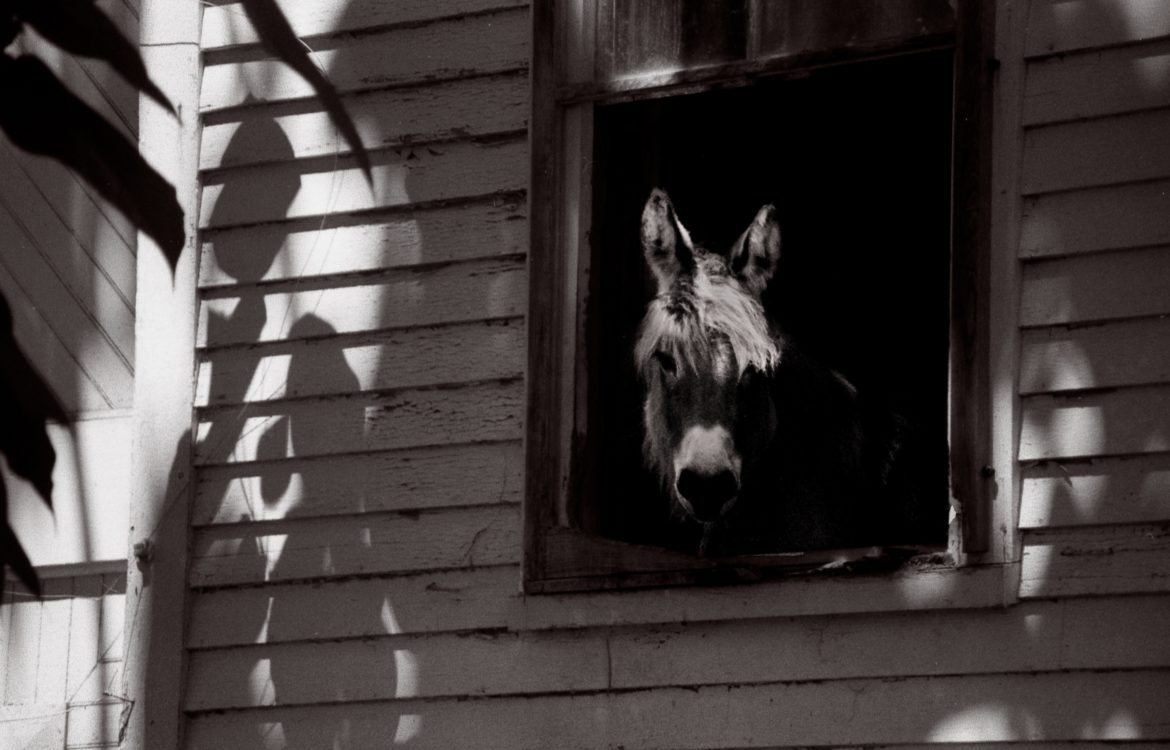InDepthNH.org celebrates our second anniversary by debuting Wayne D. King’s new column: The View from Rattlesnake Ridge: Ruminations of an Unabashed Optimist, an Environmental Patriot and a Radical Centrist. King, a former state senator, is a man of many talents and will be sharing his art, ideas and writing with our InDepthNH.org readers. Welcome Wayne. — Nancy West
By Wayne D. King,
InDepthNH.org
It was Kurt Vonnegut, one of my favorite writers, who said that the United States needed a “Secretary of the Future.” I’ve been thinking a lot about that lately partly because any distraction from the three-ring circus that is the Trump administration is a welcome one, but also because the future seems to loom larger and larger in the windshield these days.

Wayne D. King of Rumney
Back when Alvin Toffler’s “Future Shock” came out, followed by “The Third Wave,” introducing us to the concept of a futurist and the dangers of ignoring the rapidly telescoping rate of change, it was a topic of great excitement and intrigue. It summoned forth the optimism and vision of JFK and gave us relief from the malaise of the Vietnam debacle.
It was all the rage for a while but somehow we got sucked into the sexy consumerist views of what was ahead and lost sight of the more significant social and economic consequences of change. It was understandable. It was so much easier to dream about what gadgets we might see, or better yet might invent, becoming the next Steve Jobs or Bill Gates, than it was to think about what we were going to do to make sure every American – and every adult – found fulfilling work that allowed them to provide security for their families.
Today, only the most forward (and flush) corporations take seriously Vonnegut’s charge to think about the future and to plan for it.
Failure to think seriously about the future, and just as important to innovate our way into it, has played a large role in the deeply divisive and partisan politics of our age. Democrats and Republicans are both guilty of short-term thinking that threatens our future. Thinking little beyond the next election and how they can either maintain their majority or overturn the status quo, they rarely think about what they will do beyond the silly platitudes that they regularly spew on the cable news networks.
Over the last decade, both parties have killed off their own centrists and given us an increasingly polarized and almost monochromatic tableau of options at a time when options should be expanding as technology provides us with ever-expanding choices for the way in which we live our lives and the opportunities before us.
At the same time the American people have become a technicolor dream coat of opinion and vision. Young people especially have rejected many of the conventions of the past to which we were bound, long since they have moved from antiquated “common sense” to absurd nonsense. A healthy proportion of the rest of us are glad to have the cover they provide so that we can speak and live the lives we, too, have longed for.
The political divisions of the country can be largely explained more as a result of the forced choice between the zany worlds of the Republicans and the moribund notions of the Democrats. As evidence of this, one need only look at the fastest growing political affiliation in America today, Undeclared or Independent voters have eclipsed both political parties and the gap continues to widen with each election.
Divisions between elected leaders may be deep and growing, but divisions among most Americans, at least on larger matters of consequence, are a mile wide and an inch deep and with leadership that helps us to embrace the best of what we are and to disagree without malice, we can once again begin to believe in ourselves and our country. Soon enough – – well, soon anyway – – we will place the Trump years firmly in the rear-view mirror, seeing them as a bump in the road whose horror reminded us of who we really are.
But we will not do that without a common cause and that common cause can be the future; believing in it, preparing for it and innovating into it. We can start by restoring the center in our politics. Not the muddling middle, but the radical center, challenging the margins to reach out to one another and build solutions that bridge the divide and push the envelope.
Radical centrists who encourage us to trade short-term “me first” politics for long-term “we first” politics that embraces our common values, requires sacrifice and invests in the future.
Only “We the People” can make this happen. Congress, on this matter, is indeed the opposite of progress. This is a revolution that must start from the bottom and work its way up.
** Next week: Secretaries of the Future – The Time has Come
About Wayne D. King: Wayne King is an author, artist, activist and recovering politician. A three-term State Senator, he was the 1994 Democratic nominee for Governor and most recently the CEO of MOP Environmental Solutions a public company in the environmental cleanup space. His art is exhibited nationally in galleries and he has published three books of his images. His most recent novel “Sacred Trust” a vicarious, high-voltage adventure to stop a private powerline has been published on Amazon.com as an ebook with the paper edition due soon. He lives in Rumney at the base of Rattlesnake Ridge. His website is: http://bit.ly/WayneDKing
See more at: The Best of Wayne King – The artist’s best-selling and favorite images.
Fine Art Posters by Wayne King.
Calendars.
Political Websites: Unified Visions
Sustainability Blog

